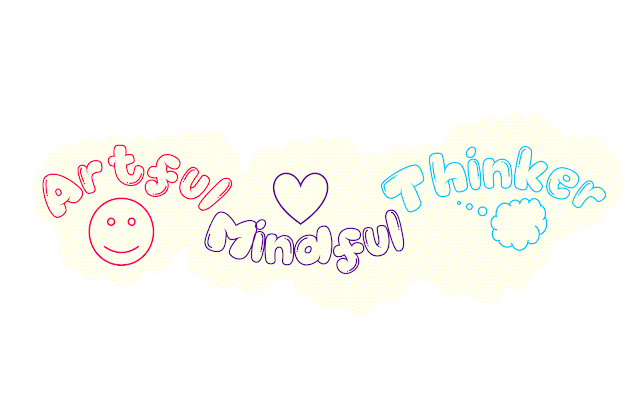Calm down your tangled brain. Write down and/or
doodle what is making it busy.
On a daily basis, we encounter lots of people
and situations that fill our brains with loads of ideas, info, feelings, and opinions,
which keep jumping here and there. Eventually they pile up causing a lot of
chaos.
The brain as a result tries to digest all
this and hence becomes overwhelmed, sometimes not able to decide what to start
with.
To rest this confused brain, an easy way is to
take these jumbled things out. This means labelling, categorizing, organizing, and
storing them. We do not want to get rid of them, as some are precious moments
or experiences that we need to recall from time to time and make use of, we
just need to put them aside. Putting them on paper helps in doing so. On
one hand, they are not lost, but rather kept in a safe place so we can find
them whenever needed. On the other hand, they do not cause a mess inside this
big box, the brain, so we can use it to focus on things that are more important.
Just like defragmenting the computer, you
organize the jumbled files in an ordered manner so you can find them easier.
These files now take up less space and as a result, the computer works faster.
Defragment your brain by writing down/doodling things and getting them off the
road.
Not only does the brain get organized by
doing so, but also becomes more aware of what’s going on, focused, and
learns to enjoy the moment. Knowing it is going to record it, the brain automatically
starts to pay attention to small details and knows how to appreciate
everything. This makes one feel and think better.
Now the question is ‘’what exactly to write
down/doodle?’’
Following
is a group of prompts to do so. Use them to make a journal, one page with one
prompt at a time. Make it a daily habit. Refer to this journal from time
to time. This helps you recall the things you stored so you can decide what to
do with each, like using it as a lesson, a motivating push, or an idea to work
on, the list goes on.
These prompts start with certain expressions.
They are called command terms. They are words with a specific meaning each that
tell the brain exactly what to do. You
can use the same prompt on a different day and write down/doodle something new
with a new date. It is good to write the day and date on top of the page so you
end up having a timeline for yourself. Choose one prompt every day. Use
them the order you like.
These are the command terms that are used
with their meanings:
1. Describe means
show in details the characteristics of this thing that you can feel with your
five senses.
2. Explain means
give the reasons for thing to happen and/or the way/steps it did.
3. List means give
the key points.
4. Outline means
give the characteristics of this thing in brief.
5. Identify means
determine the most appropriate choice.
The prompts
are:
1. Describe the
amazing you
2. Explain why you
are different today than 5 years ago
3. Describe a goal.
Explain your plan to achieve it
4. Describe a step
you had towards your goal
5. Describe your
dream home
6. Describe your
morning routine
7. Describe your
day
8. List your
grocery list
9. Describe a
recipe you cooked
- 10.
List what you ate today. Is it a suitable amount?
Suitable types?
- 11.
Describe things you saw. You can take photos as a reference.
- 12.
Outline event you attended
- 13.
Describe a place you visited
- 14.
List things you did
- 15.
Describe a new achievement
- 16.
Explain how you solved a problem
- 17.
Describe a creative/crazy idea that jumped into your
head
- 18.
Describe a design/piece of art you want to create
- 19.
Describe a conversation you had with a child/toddler
- 20.
Explain your opinion about something
- 21.
Outline something new you learned/skill you mastered
- 22.
List things that make you feel happy
- 23.
Explain something you did as a step towards
mindfulness
- 24.
Explain a brain training you had
- 25.
Describe a body exercise
- 26.
Describe a way of treating myself
- 27.
Describe something you miss and say why
- 28.
Describe something you are afraid of. Explain your
fear.
- 29.
Describe time when you felt sad
- 30.
Explain something you regret
- 31.
Describe a vivid memory you have
- 32.
Identify, describe, and explain your feeling towards a
certain person
- 33.
Describe how you prepare yourself for bed time
- 34.
Identify things you are grateful for
- 35.
List the mechanisms that you use to cope with
difficult situations.
- 36.
Describe a situation that you were not involved in.
Identify the positive things in this situation. The negative ones. The lessons
you learned from.
- 37.
Describe an incidence that happened to you. Is there
anything that I can control? Should I bother about it? Am I responsible for
anything? Why/How? What to do as a result?


